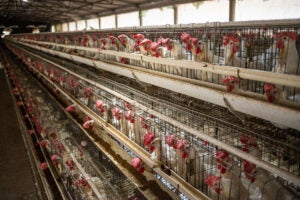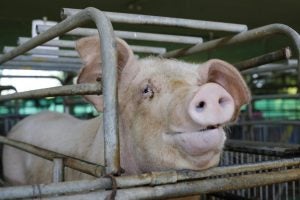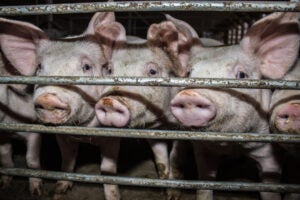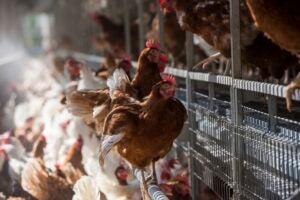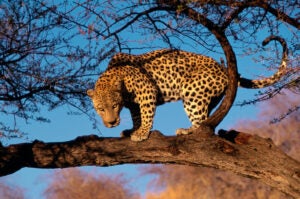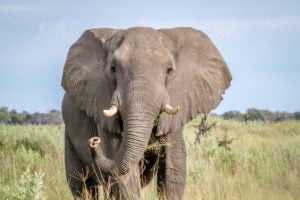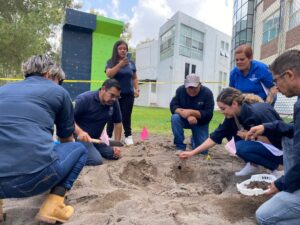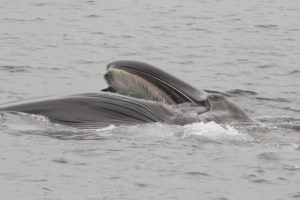
MEXICO CITY—Humane Society International/ Mexico is pleased to announce its participation in the traditional Dia de Muertos Ofrendas at Casa Fuerte del Indio Fernández in Coyoacán. This year’s beautiful and heartfelt ofrenda will be dedicated to all animals, with a special remembrance for those who departed and who have left their mark, including beloved animals like Benito (Scooby), Maple who inspired a law, Stich, Frida the beloved search and rescue dog, and all the animals we work for in the different HSI programs.
Dia de Muertos, or Day of the Dead, is a cherished Mexican tradition that celebrates and honors the lives of loved ones who have passed. HSI/Mexico recognizes the importance of extending this tradition to include the remembrance of animals, who are often cherished members of our families and communities.
The traditional ofrendas take place every year at the museum and cultural house “Casa Fuerte del Indio Fernández”. This iconic house belonging to the famous Mexican gold film actor Emilio “El Indio Fernandez” who also posed for the renowned Oscar statuette. This year the visitors will be able to pay their respects, reflect on the important role animals play in our lives, and learn about HSI/Mexico’s dedication to animal welfare. This ofrenda dedicated to them is displayed in one of the stables whose centerpiece is a beautiful mural by Diego Rivera.
In addition to this meaningful tribute, the ofrenda will feature a special culinary aspect. The dishes served will be plant-based, highlighting HSI/Mexico’s commitment to promoting a more compassionate and sustainable approach to food. This aligns with our belief that all animals, including farm animals, deserve to live free from suffering.
“On these dates we remember our loved ones and with this Ofrenda we have the opportunity to remember the animals who have shared their lives with us. It is a time to raise awareness about those who were not fortunate enough to be part of a loving family but who deserve the same love and the same respect. Let’s raise our voices for those who don’t experience compassion, and for those who never had the opportunity to live free,” said Pamela Resendiz, HSI/Mexico food and nutrition manager.
The Dia de Muertos ofrenda at Casa Fuerte del Indio Fernández will provide a space for people to come together, remember their animal companions, and consider the positive impact they can make for animals in need. HSI/Mexico invites everyone to join us in celebrating the lives of animals and to explore the meaningful work we do to protect and advocate for them, you can visit it from Oct 20th to Nov 20th at Ignacio Zaragoza 51, Santa Catarina, Coyoacán, Mexico City.
ENDS
Media contact: Magaly Garibay mgaribay@idee.agency and Laura Bravo laurabravocom@gmail.com

